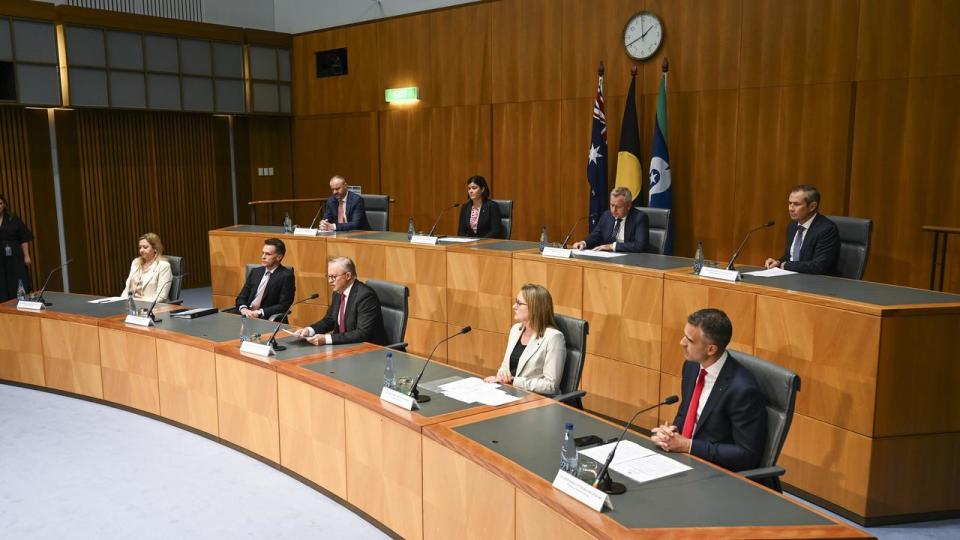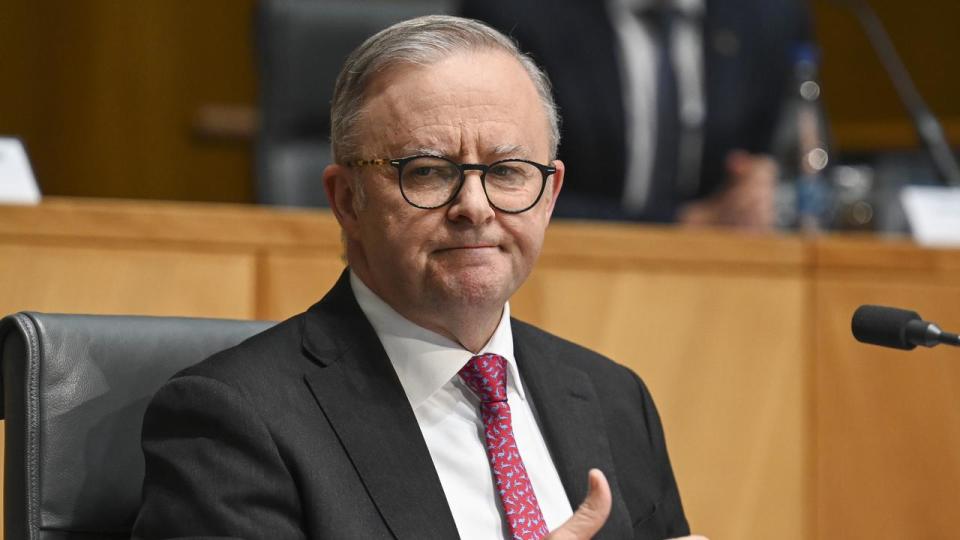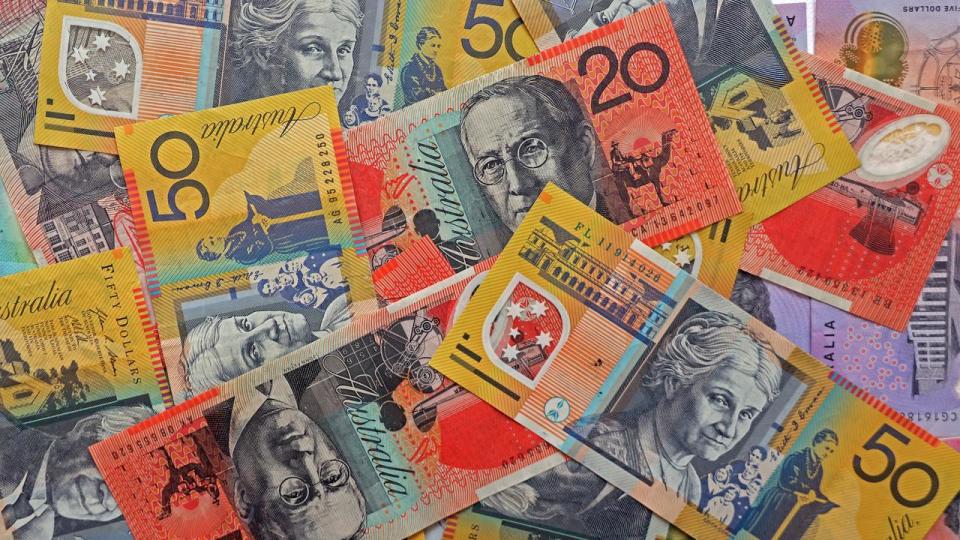Albo caves to states’ tax threat

Anthony Albanese has paid a hefty sum for reforms to share the costs of the National Disability Insurance Scheme with the states and territories.
The Prime Minister hosted leaders for the final national cabinet meeting of the year in a bid to nut out a plan to ease the NDIS’ burden on the federal purse strings.
In return the government agreed to extend a $3.5bn GST top-up payment for another three years and provide a $1.2bn hospital funding boost.
The cost of the $42bn-a-year NDIS is currently growing at an unsustainable rate of 14 per cent annually and could cost $100bn by 2032.
In April, leaders agreed to contain the scheme’s growth rate 8 per cent.
But the states had threatened to thwart the plan should an extension of the GST top-up payment not be agreed to.

Pre-emptive strike ahead of NDIS review release
On Thursday, NDIS Minister Bill Shorten will release a long-awaited review, laying the foundations for the scheme’s most significant overhaul since its inception in 2013.
The cap on the states’ share of NDIS funding will rise from 4 per cent to 8 per cent by 2026. The Commonwealth will fund all cost blowouts from July 1, 2026.
Mr Albanese insisted the reforms wouldn’t “mean any cuts” but conceded the growing costs of the NDIS were “unstainable”.
“What we want to do though is to make sure … that those people who need that support continue to get it,” he said.
The leaders also agreed to jointly design and fund a new model of “foundational supports” for millions of disabled people who aren’t on the scheme, such as those with mild autism.

Mr Albanese said that support, which is often given in a school or childcare setting, could come at an additional cost to the state.
“That (cost) will be shared, 50-50 between the Commonwealth and the state,” he said.
“We have agreed on that for the states because we think that when you look at the review that you will get to see pretty soon … you will see that in a range of areas, that it is very possible and it is necessary for costs to be reduced.
“Not in terms of the support that people need but in terms of bureaucracy and some of the businesses that are being established in some of the structures which are there.”
States win battle for GST top-up extension
Ahead of the national cabinet meeting, the premiers and chief ministers threatened to thwart the NDIS reform plan if Mr Albanese did not cave on the GST top-up.
The GST “no-worse-off guarantee” was set up after the then Coalition government changed the carve-up in 2018 to placate Western Australia.
It enshrined a floor of 70 cents per dollar of GST in 2021-22 that will rise to 75 cents per dollar in 2024-25.

But any state that received less money than it otherwise would have under the pre-existing formula was given a top-up as part of the transition.
The deal was due to expire in 2026/27 but has been extended another three years.
“Going forward, the costs are around about $3.5bn year,” Mr Albanese said.
Treasurer Jim Chalmers, who previously indicated a deal was on the table, lauded the agreement that would “provide the states and territories with certainty in their coming budgets”.
“In this challenging economic environment, it’s more important than ever for all levels of government to come together around some of the big economic and budgetary pressures that all of us are facing,” he said.
“We’ll continue to work with our state and territory colleagues in the best interests of all Australians.”
A review of the GST formula will be undertaken by the Productivity Commission at the end of 2026.
Health funding boost
The federal government also agreed to increase its share of public hospital funding to 45 per cent over 10 years from July 1, 2025.
The annual cap on the Commonwealth contribution will be abolished and replaced by a cumulative cap for the first five years.

National firearm registry
Close to 30 years after it was first agreed to in the wake of the Port Arthur massacre, leaders signed a deal for a national gun registry.
“While Australia has some of the strongest firearms laws in the world, the register will address significant gaps and inconsistencies with the way firearms are managed across all jurisdictions,” Mr Albanese said.
“The register will be a federated model – state data connects with a central data hub allowing near real-time information sharing across the country.”
A funding plan to bring the state and territories under a single database that would provide frontline police with real-time firearm data ownership was also agreed to.
National cabinet agreed to work together to ensure that the register was fully operational within four years.


